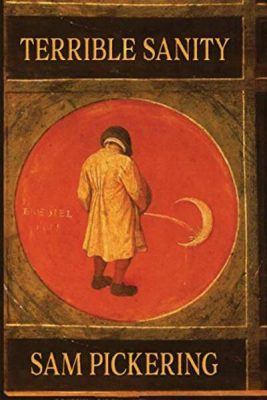Sam Pickering, Author
Terrible Sanity is wondrous sanity. Pickering's essays are acetaminophen for hippish days. "Life doesn't have a neat beginning and a tidy end," Roger, a character in V. S. Naipaul's Half a Life, says. "Life is always going on." In this collection, Pickering depicts the joy and sadness of life's going on. He observes that great knowledge often brings small pleasure while the small knowledge that all people experience brings great pleasure. A dental hygienist tells him that every day patients greet her on the street and in stores. "Their faces are always unfamiliar, and I never recognize them," she says, "but if they opened their mouths wide, I'd know them immediately." For the record she also volunteers that in twenty years of tooth-scrubbing, she had only been bitten once.
Pickering is nomadic, and his essays explore place and thought. He quotes the old Afghan proverb that doing good to the wicked is doing evil to the good. He discusses how to teach and avoid becoming an inspiration. He describes "Smoking Allowed Churches" and suggests replacing the mealy phrase student athlete with the more accurate entertainer athlete. He notes that people of a certain age attend funerals not to mourn the deceased but to see how many of their mutual friends are still alive and almost kicking. A reviewer once called him "the last Southwestern humorist," and he is an exhilarating teller of tall tales, Mark Twain's stretchers. He is also an omnivorous reader reaping pleasure from both the famous and the lesser known, an example of the latter being the romance novel with the enticing title The Billionaire in Penthouse B.
He is also an amateur naturalist, and animal familiars wander through his days like characters from children's books, backyard rabbits, foxes, reclusive opossums, lonely deer, and ill-mannered skunks. He watches birds. Flowers illuminate his paragraphs and trees grow bosky on the margins of his pages. Down in the soiling dirt is where most gods live, rooting and flowering, dying, and being reborn, he writes. Consequently, he avoids arid heights where dogma flourishes.
No book or person is a "thing of beauty or joy forever," but some books sparkle and so entertain that they brighten the passing hours. Terrible Sanity is just such a book.
